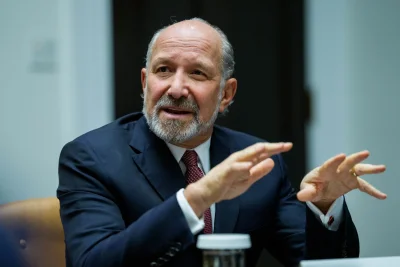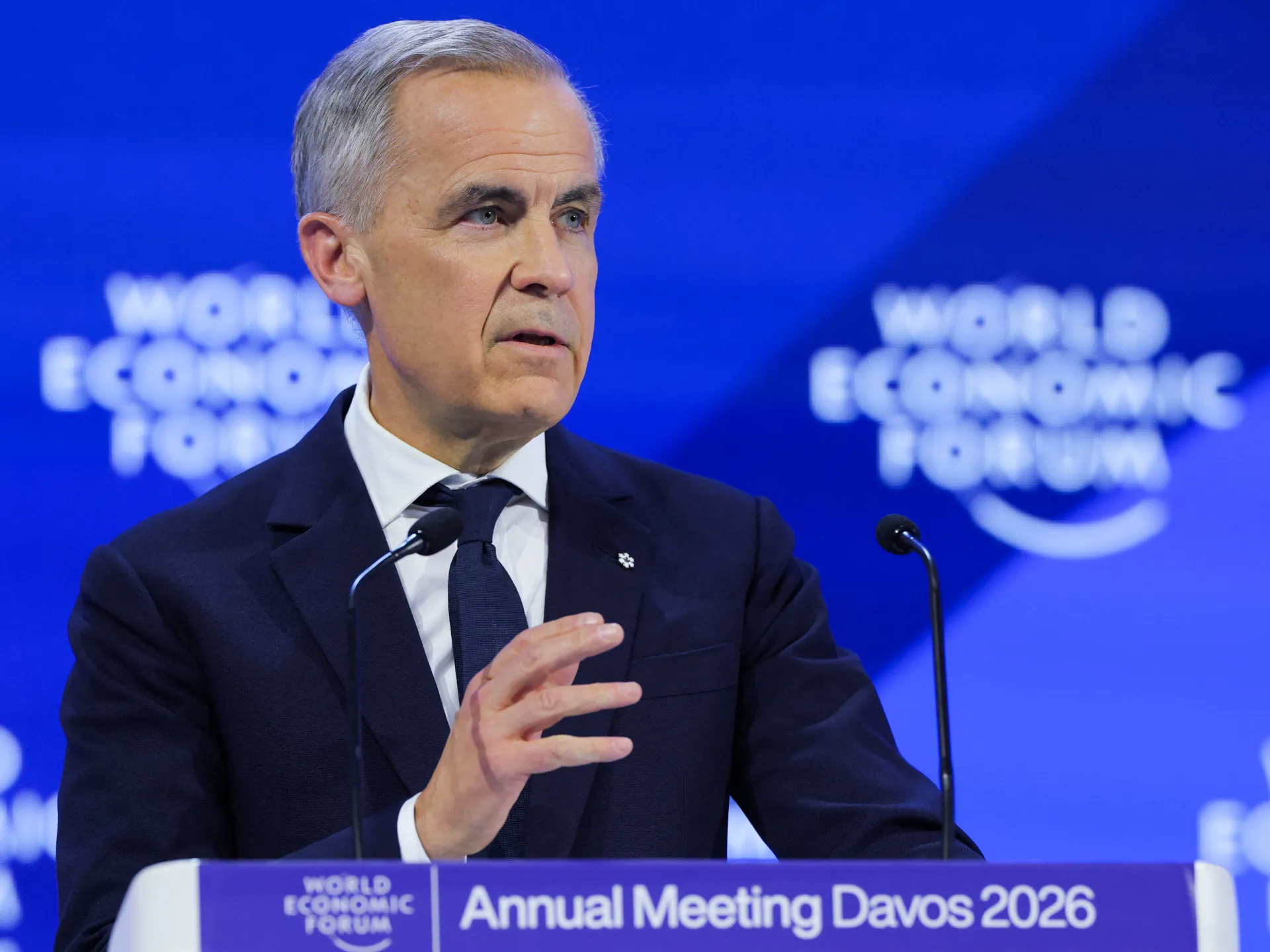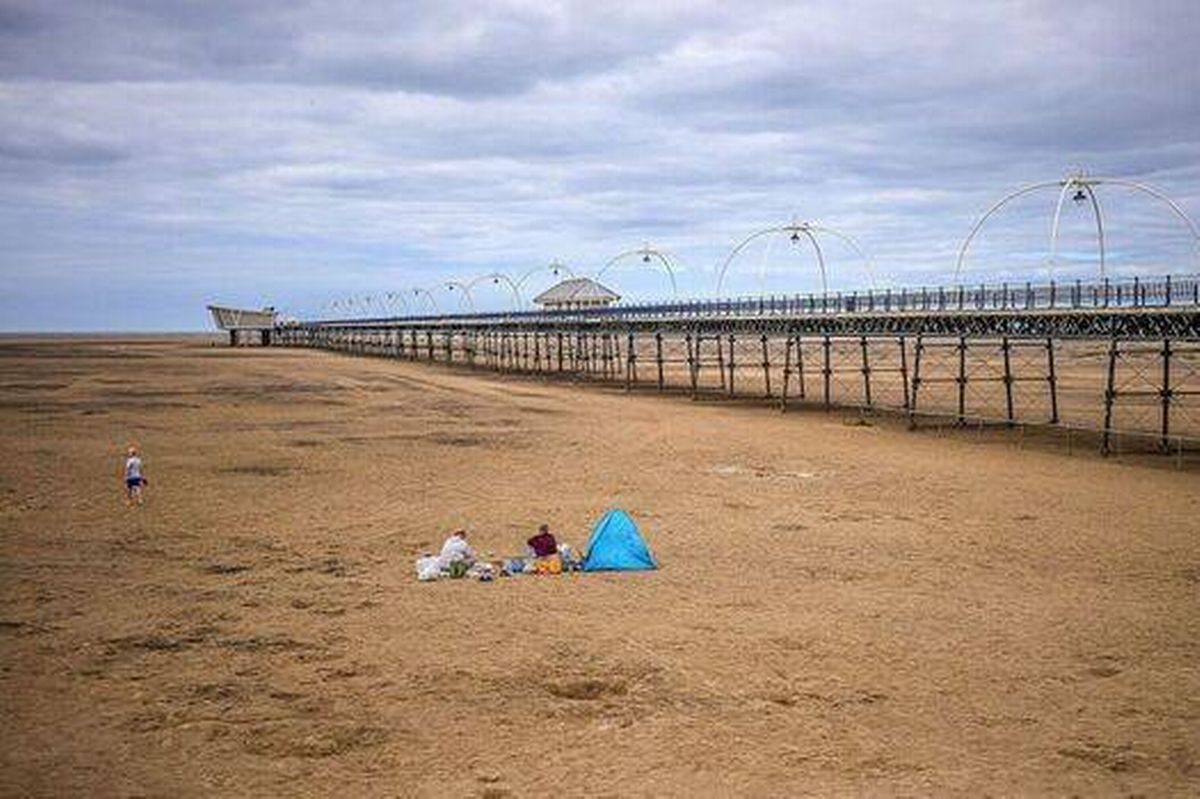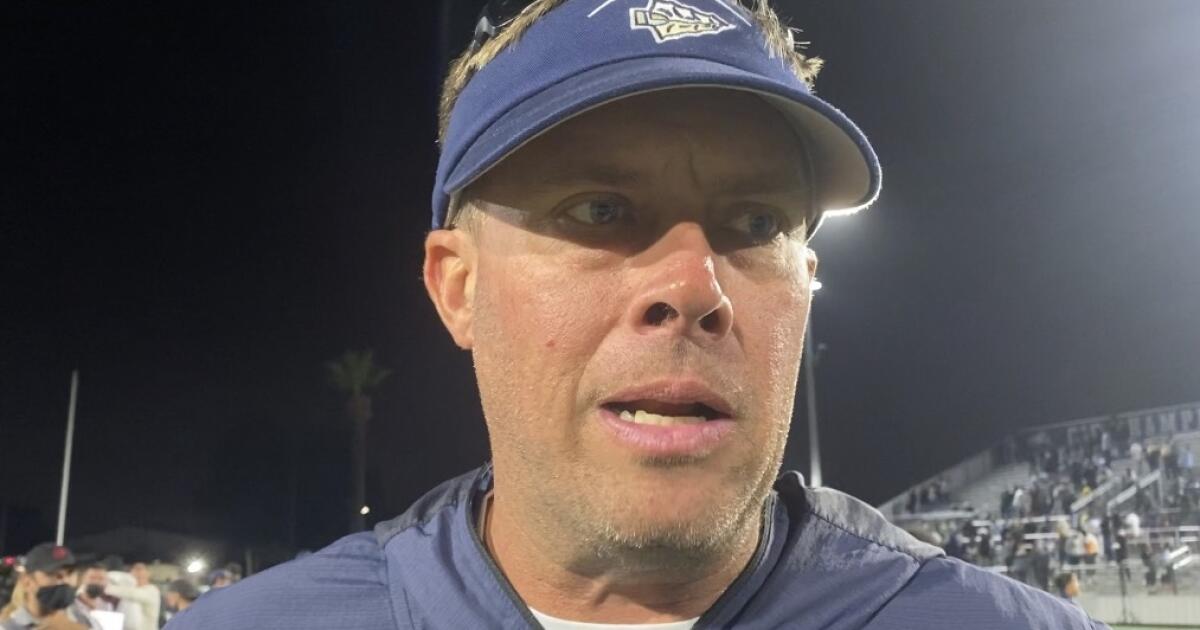Mr Consistent: Has Danny Rohl turned Rangers’ ship around?
While Youssef Chermiti earned rave reviews for his Old Firm heroics at the start of the month, he and Bojan Miovski passed up chances on Thursday and questions still linger over their ability to hold down the number nine shirt.
“Rangers aren’t the finished article, there’s still work to be done but they’re going in the right direction,” McFadden said. “There has been big progression, but they need to strengthen at the top end.
“They’re winning games. Are they at their free-flowing best? No, but it doesn’t matter. Somehow, they’ve managed to get themselves into a title race.”
At least there have been some reinforcements. Toko Chukwuani has come in as a defensive midfielder, and Rohl has also brought in left-back Tuur Rommens – a problem position given Jayden Meghoma was the only natural in the position – and winger Andreas Skov Olsen.
The latter is considered a big coup, on loan from Wolfsburg, and adds much-needed quality to the wings. Djiedi Gassama’s form has tailed off, and although Mikey Moore has come onto a game, Oliver Antman is still out injured.
Ineligible for the win over Ludogorets, the trio are expected to feature in some capacity against Dundee. That game could be vital in the grand scheme of the season, due to Hearts and Celtic meeting at Tynecastle the same day.
“I thought this season was a write-off,” admitted pundit Steven Thompson at Ibrox. “There were changes at board level, the recruitment wasn’t anywhere near good enough but Danny Rohl has flipped the script.
“You’ve got to give him so much credit for that. At times the football was good tonight, at times it was just OK. But it’s a clean sheet in Europe, and it just keeps this feel-good factor going.”
If the other two title contenders knock points off each other, Rangers could be within three points. Heady heights from the early days of Martin.
“Danny Rohl has done an absolutely fantastic job with this group of players,” said ex-Rangers midfielder Andy Halliday. “There is that lingering question – can they go that extra yard? A lot of people didn’t this group of players could step up.
“I think they need help, and the biggest help they could be given is a number nine at the top end of the pitch.”
One of the UK’s ‘worst seaside towns’ is getting a huge £37.5million revamp
The coastal town has been ranked by Which? Magazine as one of the worst seaside towns in the UK for two consecutive years
Sunny days seem to be ahead for a UK seaside town that has long suffered bad reviews and cruel digs.
Southport in Merseyside was, like many other coastal spots, a prime seaside resort during Victorian times. Southport Beach marks the northernmost point of Sefton’s stunning 22-mile stretch of coast and features one of the nation’s most distinctive natural habitats. It serves as a sanctuary for thousands of migratory wading birds travelling from their northern breeding territories and has gained recognition for staging the Southport Air Show.
However, as with many other parts of the coast, it has fallen on hard times in recent years. Its demise is evident in the state of the Scarisbrick Hotel, a once-grand feature of the town that is now a shadow of its former glory.
Former teacher, Sean Byrne, 62, said: “This place used to be a gold mine. It was a fantastic place to come for weddings, for meals out. It was the jewel in the crown of this town.” A lifelong resident, Mr Byrne told the Liverpool Echo: “There has been a big deterioration in the upkeep of the town. Look at the parks and the cemeteries – absolutely awful.”
For two years in a row Southport was ranked as one of the worst seaside towns in the UK by Which? Magazine.
READ MORE: EU winter sun hotspot turns into ‘ghost town’ as huge storm forces tourists to take shelterREAD MORE: I visited the most f****ed pub in my city – what’s happening is really sad
Southport’s pier was one of the town’s major attractions along with shops on Lord Street, but both appear to be fading. The Grade II-listed pier is the second longest in the country, but it has been closed since December 2022 due to serious health and safety issues.
However, the pier, and many other parts of the town, are in line for a serious makeover that locals hope will radically change the feel of the place.
Major restoration works on Southport Pier are due to begin in early 2026, with the transformation of the second-longest pier in the UK – which comprises 68 bays and is 1,108 metres in length – expected to take 14 months.
In September last year, the Government allocated up to £20 million from the Growth Mission fund for Southport Pier repairs to be carried out, subject to a full business case. When back up and running, Southport Pier is estimated to generate £15 million a year for the Southport economy.
Southport Town Hall Gardens: £10 m transformation into a family-friendly flexible events and community space.
Liverpool City Region Development Partnership lists some of the biggest redevelopment projects that locals and visitors will see taking shape this year. Some have been inspired by the £37.5 million Southport Town Deal regeneration support from the Government.
- Bebe’s Hive: New creative and safe space for children to explore grief in Cambridge Arcade.
- Marine Lake Events Centre & Light Fantastic: £73 m cutting-edge attraction progressing with enabling works underway.
- Cove Resort: Plans move forward for a £75 m leisure resort with outdoor lagoon, spa, and hotel on the Esplanade site.
- Ainsdale Coastal Gateway: Nature-led regeneration vision to boost the coastal destination and protect dunes.
- The Garrick: Redevelopment of the Art Deco building into the UK’s first theatre-spa-hotel.
- Sefton Padel: New padel and refurbished tennis courts with park amenities opening at Victoria Park.
- Footy Nation: UK’s first football skills park under construction at Ocean Plaza Leisure Park.
- Southport Visitor building: Former newspaper office being turned into 26 flats with new ground-floor retail.
- Leo’s Bar building: Art Deco landmark being refitted with pub, retail units, and new residential dwellings.
Southporters can also look forward to a year of cultural events which, according to Sefton Council, continue the town’s entertainment pedigree. “For over two centuries, it’s been a place of performance, spectacle and eccentric entertainment with visitors from Napoleon III to Judy Garland revelling in Venetian Gondolas taking over the water, Elephants parading on Lord Street, Camel Races on the beach and famous street entertainers diving from the pier,” the council’s website reads.
Giant Chandeliers, world class circus performers and never ending rainbows will all be on show in Southport next year as part of a hugely ambitious programme of new cultural events.
As one of the UK’s most historic seaside destinations, Southport has long drawn generations of visitors with its elegant boulevards, Victorian architecture and flamboyant history.
2026’s calendar of events
Lightport – February
A breathtaking immersive light and sound installation from leading international artists Lucid Creates that will turn the town into a walk-through rainbow of colour and creativity.
Cristal Palace – April
World-renowned French street theatre company Transe Express brings its spectacular show Cristal Palace to Lord Street with a 15-metre-wide flying chandelier, transforming the street into an open-air ballroom with live music, aerial performance, and dance, a dazzling fusion of art and theatre set to be one of the year’s defining moments.
Big Top Festival – May
Big Top Festival will take over the town with the best of modern circus, including shows from world-renowned companies, including Circa and Gandini Juggling, coming to one of the art form’s spiritual homes. Across open-air stages, audiences can expect breathtaking acts, live music and hands-on workshops for all ages.
Southport Originals – summer
Throughout the summer, Southport’s much-loved calendar favourites return in style, the Southport Flower Show, Food and Drink Festival, Southport Air Show and British Musical Fireworks Championships, celebrating the town’s proud traditions while drawing visitors from across the UK.
Books Alive! – October
Books Alive! Is a reimagined literature festival designed for families and young readers. Running through half-term, the event will fill the town with storytelling installations, live performances and author-led workshops, turning Southport into a living storybook. You can find full details on the programme here.
Councillor Marion Atkinson, leader of Sefton Council, said: “Southport has a rich and celebrated history of fantastic entertainment for all the family across generations. We are proud to be working with the Liverpool City Region Combined Authority and Culture Liverpool to give Southport its well deserved spotlight with a year of amazing activities and free events.“2026 and beyond is an exciting time for the town with the regeneration of the Town Hall Gardens, the creation of the Marine Lake Events Centre and more all coming in quick succession. I hope everyone takes this festive time to rest up because next year will be one that just doesn’t stop! We can’t wait to welcome visitors for this packed series of incredible events in this wonderful town.”
Trump sues JPMorgan and CEO Dimon over alleged ‘debanking’ | Donald Trump News
The $5bn lawsuit alleges JPMorgan abruptly closed multiple accounts in 2021 cutting off Trump & his firms from access to funds.
Published On 22 Jan 2026
United States President Donald Trump has sued banking giant JPMorgan Chase and its CEO Jamie Dimon for $5bn, accusing JPMorgan of debanking him and his businesses for political reasons after he left office in January 2021.
The lawsuit was filed on Thursday in Miami-Dade County court in Florida. It alleges that JPMorgan abruptly closed multiple accounts in February 2021 with just 60 days’ notice and no explanation. By doing so, Trump claims JPMorgan cut the president and his businesses off from millions of dollars, disrupted their operations and forced Trump and the businesses to urgently open bank accounts elsewhere.
Recommended Stories
list of 4 itemsend of list
“JPMC debanked [Trump and his businesses] because it believed that the political tide at the moment favored doing so,” the lawsuit alleges.
In a statement, JPMorgan said that it “regrets” that Trump sued them but insisted they did not close the accounts for political reasons.
“We believe the suit has no merit,” a bank spokesperson said. “JPMC does not close accounts for political or religious reasons. We do close accounts because they create legal or regulatory risk for the company.”
The White House said it will refer the matter to the president’s outside counsel.
Banks have faced growing political pressure in recent years, particularly from conservatives who argue that lenders have improperly adopted “woke” political positions and, in some cases, discriminated against certain industries, such as firearms and fossil fuels.
That pressure has intensified during Trump’s second term, with the Republican president claiming in interviews that some banks refused to provide services to him and other conservatives. The banks have denied the allegation.
A US banking regulator said last month that the nine largest US banks in the past had placed restrictions on providing financial services to some controversial industries in a practice commonly described as “debanking”.
Last year, JPMorgan said it was cooperating with inquiries from government agencies and other entities regarding its policies and procedures in light of the Trump administration’s push to scrutinise banks over alleged debanking.
Reputational risk
US regulators have examined themselves to see if overly strict supervisory policies discouraged banks from providing services to certain sectors.
Trump-led officials have also moved to loosen oversight, with federal bank regulators last year saying they would stop policing banks based on so-called “reputational risk”.
Under that approach, supervisors could penalise institutions for activities that were not explicitly prohibited but could expose them to negative publicity or costly litigation.
Banks have increasingly complained that the reputational risk standard is vague and subjective, giving supervisors wide discretion to discourage firms from providing services to certain people or industries.
The industry has also argued that regulators need to update anti-money laundering rules, which can force banks to close suspicious accounts without giving customers an explanation.
Shadow Fleet Tanker Seizure Operations Expand In The Face Of Russian Warnings
The French Navy, aided by British intelligence, boarded the Comoros-flagged tanker Grinch today. The vessel had originated its voyage from Russia. The move comes amid a growing U.S. and allied effort to use military force for interdictions of the so-called ‘shadow fleet,’ a network of ships with links to Russia that transport its oil, in breach of sanctions and price caps. In response to that effort, Russia sent a warship to escort one of these vessels, following its warning against boardings.
“We will not tolerate any violation,” French President Emmanuel Macron said on X. “This morning, the French Navy boarded an oil tanker coming from Russia, subject to international sanctions and suspected of flying a false flag. The operation was conducted on the high seas in the Mediterranean, with the support of several of our allies. It was carried out in strict compliance with the United Nations Convention on the Law of the Sea.”
Macron said the ship has been “diverted” and that a judicial investigation has been opened.
“We are determined to uphold international law and to ensure the effective enforcement of sanctions,” the French leader explained. “The activities of the ‘shadow fleet’ contribute to financing the war of aggression against Ukraine.”
The French military posted additional photos of the operation on X. One shows a helicopter hovering near the Grinch.
The French mission was conducted in conjunction with the U.K, which gathered and shared intelligence that enabled the ship to be intercepted, according to French military officials who spoke to The Associated Press. It was not the first such mission and won’t be the last, a French official told us.
“Last September, French naval forces boarded another oil tanker off the French Atlantic coast that Macron also linked to the shadow fleet,” the Independent noted. “That tanker traveled from the Russian oil terminal in Primorsk near Saint Petersburg. Known as ‘Pushpa‘ or ‘Boracay‘ — its name was changed several times — the ship was sailing under the flag of Benin.”
However, the Grinch boarding came as European nations are vowing to increase efforts to stop shadow fleet vessels, and amid growing tensions with Russia over interdiction efforts. On Monday, the Russian Project 20380 corvette Boikiy entered the English Channel, accompanying an oil tanker on its way back to the Baltic Sea, according to the Times. This military escort was the first “since Britain threatened to seize Moscow’s shadow fleet ships,” the Times added.

Last week, U.K. Foreign Secretary Yvette Cooper told Politico that London was willing to consider joint enforcement efforts.
“We stand ready to work with allies on stronger enforcement around the shadow fleet,” she said.
While declining to offer specifics, Cooper did not rule out the prospect of British forces boarding vessels.
“It means looking at whatever is appropriate, depending on the circumstances that we face,” she told the publication.
She also “did not rule out using oil from seized vessels to fund the Ukrainian war effort — but cautioned that the prospect was of a different order to using frozen Russian assets to fund Ukraine,” according to Politico. “That idea hit a wall in discussions between EU countries in December.”
Cooper’s statements sparked a warning from Russia that these ships “will be escorted by security ships,” Russian Ambassador to the U.K. Andrey Kelin told the official Russian news outlet Izvestia earlier this week. “Areas closed to navigation may arise and attempts may be made to block critical straits and channels.”
“This is a deliberate escalation of instability, the consequences of which for international law and order and global trade will be extremely serious,” Kelin added. “What politicians in London are talking about is essentially a return to the era of the pirate Edward Teach, known as Blackbeard. What they forget is that Britain has long ceased to be the ‘ruler of the seas,’ and its actions will not go unpunished.”
While still mulling over its future plans for ship interdictions, the U.K. assisted a separate U.S. effort to seize sanctioned ships in the wake of a blockade of Venezuela ordered by President Donald Trump. On Jan. 7, British forces helped interdict the runaway tanker Marinera, which was previously known as the Bella 1, during a ship boarding in the North Sea.
“U.K. armed forces provided pre-planned operational support, including basing, to U.S. military assets interdicting the Bella 1 between the U.K. and Iceland following a U.S. request for assistance,” the MoD said in a statement at the time. “RFA Tideforce is providing support for U.S. forces pursuing and interdicting the Bella 1, while the RAF provided surveillance support from the air.”
While there were reports that Russia would send warships to escort the Marinera, there was no effort to stop the interdiction.
You can see that effort in the following video.
On Tuesday, U.S. Southern Command announced the seventh such seizure.
“U.S. military forces, in support of the Department of Homeland Security, apprehended Motor Vessel Sagitta without incident,” SOUTHCOM said on X. “The apprehension of another tanker operating in defiance of President Trump’s established quarantine of sanctioned vessels in the Caribbean.”
Because much of the oil on these sanctioned ships goes to help fund Russia’s war in Ukraine, Ukrainian President Volodymyr Zelensky on Thursday chided Europeans for not doing more to prevent the shipments.
“Why can [U.S. President Donald Trump] stop tankers of the ‘shadow fleet’ and seize their oil, while Europe can’t,” Zelensky complained during his speech at the World Economic Forum in Davos, Switzerland. “Russian oil is transported right along the European coast. This oil funds the war against Ukraine. This oil helps destabilize Europe. Therefore, Russian oil must be stopped and confiscated, and sold to benefit Europe. Why not? If Putin has no money, Europe has no war. If Europe has money, then it can protect its people as well. Right now, these tankers are earning money for Putin, and that means Russia continues to push its sick agenda.”
After the Grinch was boarded, Zelensky thanked France via a post on X.
“This is exactly the kind of resolve needed to ensure that Russian oil no longer finances Russia’s war,” he stated. “Russian tankers operating near European shores must be stopped.”
Contact the author: howard@thewarzone.com
Autumn Durald Arkapaw on her historic Oscar nomination for ‘Sinners’
With her nomination for the cinematography of “Sinners,” Autumn Durald Arkapaw becomes the first woman of color — and only the fourth woman ever — to be recognized in the category. The recipient of a record-setting 16 nominations, Ryan Coogler’s vampire film set in the 1930s was advanced in every category for which it was eligible. Arkapaw previously collaborated with Coogler on 2022’s “Black Panther: Wakanda Forever.”
Arkapaw got on the phone on Thursday morning from her home in Altadena — thankfully spared from last year’s fires — that she shares with her husband, Adam Arkapaw, also a cinematographer.
“It’s nice to have an understanding of what each other does because it’s a hard job and making films isn’t easy,” said Durald Arkapaw of having two cinematographers under one roof. “But we also have a family, so usually when I’m working, he’s watching our son and vice versa. So it’s kind of a team effort. But there is an understanding. I wouldn’t say we talk about it all the time because it gets exhausting. You get enough of that when you’re at work.”

Autumn Durald Arkapaw, photographed in Los Angeles in November.
(Bexx Francois / For The Times)
What do these historic firsts mean to you?
Autumn Durald Arkapaw: I’m trying to take a moment to kind of let it sink in. I’m just so honored every time I get to stand next to Ryan and make a film with him, because what I think he does and says is very unique. And we’re always doing something for the first time and with a very unique group of people. Like having all heads of departments be women of color and these are women that inspire me every day. I think now to be a part of that because [production designer] Hannah [Beachler] and [costume designer] Ruth [E. Carter] have also been able to do some work that’s been recognized. Now being a part of that group, I feel very honored, especially for a film like this. That it’s for this film, means a lot to me.
What is it about this film in particular that makes it even more special?
Arkapaw: I think for myself and most of the team members, we have a lot of history and culture rooted in this story. My family’s from New Orleans. My father was born there, my great-grandmother was born in Mississippi. So when I read the story, it felt very close to home. And I think that allows you to be able to pour yourself into it. And there’s a lot of meaning in it and you want to make your ancestors proud. This film has so much love that was poured into it on set and I think it really connected with a lot of people. And I think that’s how you do really great films. You pour as much as you can of yourself into it.
The film was such a success when it came out earlier this year. What is it that you think audiences were responding to?
Arkapaw: I’m an operator so I love to have my eyepiece to the camera and Ryan sits right next to me. So a lot of the stuff that we photographed, I was there in the moment. It was very felt. And I always said, “If I don’t feel it, then I don’t feel the audience can.” So I’m very much someone who shoots from the heart and wants to make sure that emotion is being conveyed. Ryan is the same way. There was a lot of that going on on set, where there were moments where you felt like you actually weren’t making a movie. Things were unfolding in front of you in a very unique way. Like it felt like a real space at times. That matters. If you feel that way on set, it is, it does feel communicated all the way up until the audience sees it in this dark room. And then they don’t feel like they’re watching a movie anymore. And it’s nice when that translates. It doesn’t always happen. And with this film it did, on an insane level.
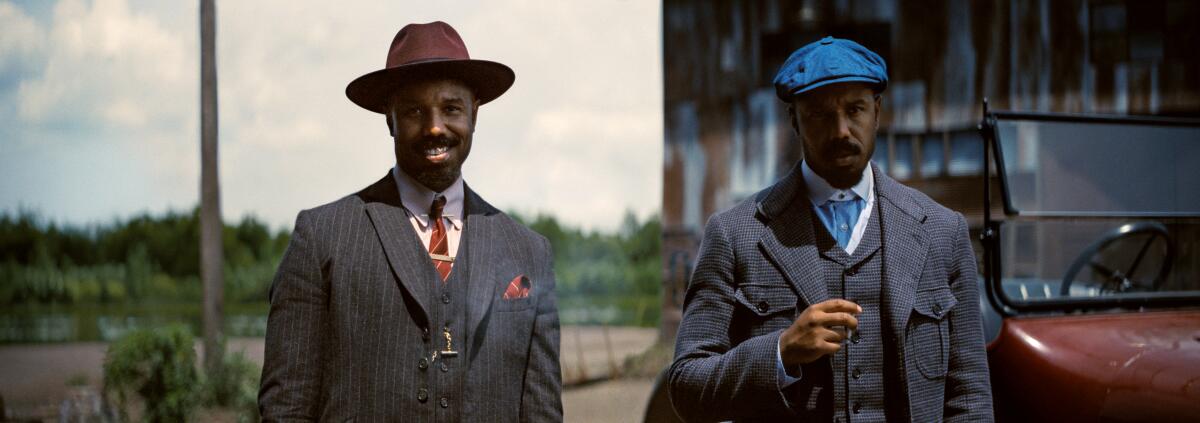
Michael B. Jordan as Smoke and Stack in the movie “Sinners.”
(Warner Bros. Pictures)
When did you and Ryan start talking about shooting in 65-millimeter Imax?
Arkapaw: He had envisioned it to be 16-millimeter. So originally, I made some lenses with Panavision that I shot “The Last Showgirl” with before this. And so I was kind of testing those in hopes that it would be something we would use. And then the studio called Ryan and said, “Have you guys thought about large format?” And he called me immediately after and he was like, “Let’s talk about it.” And we got a bunch of different formats together and when you’re talking about large format in a film context, it means 65-[millimeter]. So we tested all these different formats. And obviously we fell in love with the [Imax formats] 15-perf and the 5-perf. And putting them together for the first time was unique. That was fun to do because we tested it and then we kind of put an edit together and looked at it as a team and it all felt very right. So it’s nice to do something historic like that and have it work and have the audience enjoy that big shift of ratios.
Just from a workflow aspect, what was it like having to adjust to these new technologies?
Arkapaw: I always feel like with Ryan, he always gives me a big challenge. He likes to think big and outside the box. We did that on “Wakanda Forever.” We shot a bunch of our scenes underwater with actors, for real. And in this film, there were a lot of different sequences, moving the Imax camera around in the studio, treating it like it wasn’t necessarily a large-format film, but shooting like we would if it was a smaller camera and being true to how we like to move the camera. It’s a lot of logistics involved. You have to have an amazing team. My team personally is fantastic and they did a great job. Focus-pulling is not easy on a film like this.
So it was a challenge. But I think because everyone’s so inspired by Ryan, he’s a great leader on set and everyone really likes him, so they want to do a good job for him. I see that every time we do a film, I have the same crew that I use. It’s like a family. And they respect him. So when you give us a challenge, we really want to make sure that we do it well so that it’s a good experience for the moviegoers. Because he’s always reminding us on set about that: “Big movie, big movie.” We’re making a movie for the theaters.
When the movie was coming out, people really liked that the explainer video that Ryan made about all the different formats. How did you feel about that video and that, for something that felt so technical and nerdy, it got really popular.
Arkapaw: I remember the moment that he brought it up, we were at the Playa Vista Imax headquarters and we had just done a screening to look at the prints. And he was like, “I want to talk to you guys.” And so myself and Zinzi [Coogler], our producer, and our post-producer Tina Anderson, we went and talked for a second and Ryan said, “I want to shoot a video that explains all the formats so that people can understand what we did and what it means and all that stuff.” And his eyes lit up and I thought it was such a cool idea. Fast-forward to it coming out and everyone really embracing it because it was so thoughtful. It was really cool.
If you see it in Dolby, it’s special, but if you go see it this way, it’s even more special because the screen opens up. So I think putting that in the hands of audiences is very thoughtful. And that’s how Ryan is. He wants them to have this information because when he was a kid and going to theaters, we all felt that same way, where that one night you walked to the theater or you drove and you waited an hour to see it and it was a whole experience. And so I think that’s why it went viral because people wanted to be a part of that.
Do you have a preferred format?
Arkapaw: My preferred format is the origination format, because I’m framing the movie for Imax 1.43:1 and then also with the 2.76:1 Ultra Panavision format. So my best way of seeing the film would be the Imax 70mm full-frame print. And obviously, there are only about 40 theaters in the world that project that. I don’t think we had it in all 40, maybe we only had 11, I think, across the world. But I was very much telling everyone that if you can get a ticket, please go see it in the 70-[millimeter] projection of Imax, full-frame. It’s so beautiful.
Assembly Rejects 2 Forest Protection Bills : Environment: The measures, which had the backing of Gov. Wilson, included a ban on clear-cutting in old-growth tracts. Lobbying by the Sierra Club is blamed for the defeat.
SACRAMENTO — Pro-business conservatives and environmentalist liberals joined forces in the Assembly on Monday to engineer the surprise defeat of two forest protection measures that had the backing of Gov. Pete Wilson and a powerful coalition of timber companies and conservation organizations.
Swayed by arguments that the measures could lead to the destruction of ancient forests as well as the loss of hundreds of logging jobs, a bitterly divided Assembly voted against the bills that had been designed to stop overcutting in the state’s 7.1 million acres of privately owned timberlands.
A similar alliance in the Senate failed, however, to stop two other measures in the four-bill package, and they passed easily by separate 22-14 votes.
Buoyed by the Senate action, the bills’ Assembly authors said they would bring the defeated measures up again for another vote, possibly as early as today, but they acknowledged it would be difficult to win passage. Both bills need 41 votes to garner Assembly approval and they drew just 28 and 31 votes Monday.
The legislation, which was the result of a compromise reached after months of negotiations between environmental organizations and timber companies, would ban clear-cutting in ancient and old-growth forests, limit its use in other types of forests, provide protections for forest watersheds and wildlife and place restrictions on timber harvesting that are designed to prevent loggers from cutting more than they can grow.
Although the measures had support from environmental organizations like the National Audubon Society and the Planning and Conservation League, Assembly sponsors blamed a heavy lobbying attack from the Sierra Club for siphoning off key Democratic votes and leading to the unexpected defeat.
“I think the Democratic side bought the Sierra Club argument,” said Assemblyman Byron Sher (D-Palo Alto), a sponsor of the package.
Sher said pro-environment lawmakers were drawn to the Sierra Club argument that last-minute fine-tuning of the legislation had led to changes that would exempt 30,000 acres of old-growth forest owned by Pacific Lumber Co. from some of the new restrictions on harvesting.
While he insisted there was no such exemption in the bills, Sher said it may be necessary to make changes to satisfy Sierra Club objections in order for the measures to pass the Assembly.
But in the Senate, Republicans who had backed the bills after winning assurances from Wilson that there would be no changes insisted they would withdraw their support if the legislation was altered in anyway.
“If it takes an amendment to line up Democratic votes, that amendment will cause me and I’m sure many other Republicans to drop their support,” Sen. Tim Leslie (R-Auburn) said firmly.
Insisting the defeat had been motivated by partisan politics, Assemblyman Chris Chandler (R-Yuba City) predicted the measures would eventually pass without any changes with more support from Republicans.
“I think the issue will come together quite nicely (Tuesday),” he said, adding that he expected at least two more Republicans to vote yes.
Other lawmakers agreed, saying that many Democrats had not voted on the measures, preferring first to wait and see how much Republican support they would garner. Some grumbled privately that even though Wilson was backing the measure, only 10 Republicans had voted for the bills while 18 had voted against them.
On the Assembly floor, however, the debate avoided politics and focused on the issues of jobs and ancient forests.
Conservative Assemblyman Tom McClintock (R-Thousand Oaks) said the new restrictions would put 17,000 families on the North Coast out of work as timber companies were forced to cut back on harvesting and reduce saw mill production.
“Is it possible that even now, this Administration and this Legislature does not understand the enormous damage which they have done to our economy?” McClintock said. “That even now, while the governor postures about his concern for the economy, he is waging unrelenting war against the remaining job base of our state?”
On the Democratic side, Assemblyman Tom Hayden, (D-Santa Monica), objected to the measures on environmental grounds, arguing that while they banned clear-cutting in ancient forests they also allowed a schedule of harvesting that permitted those forests to be decimated in the next two decades.
“It’s a legalized schedule for their destruction,” Hayden said, “with the possibility held out that a few (trees) will be retained like animals in the zoo.”
Curt Cignetti once said, ‘Google me.’ This is what happens when you do
Curt Cignetti was salty.
Asked at a news conference about how he planned to sell his vision to young players, the recently hired Indiana coach didn’t even look up while delivering his now-famous response.
“It’s pretty simple. I win,” answered Cignetti, who then paused two seconds before delivering the final two words.
“Google me.”
A little over two years later, there’s no need to Google the 64-year-old coach who just finished leading the Hoosiers to an improbable 16-0 season and their first national championship in football.
But anyone who does happen to use the technology giant to look up Cignetti’s name will find something interesting at the very top of his search result page. It’s just three words:
Google left the Easter egg following Indiana’s 27-21 victory over Miami in Monday’s College Football Playoff championship game. A representative from the company told The Times the phrase would remain atop Cignetti’s page for the next few weeks.
Here are some other facts a search on Cignetti might produce. His first head coaching gig came in 2011 at Indiana University of Pennsylvania, where his father, Frank Cignetti, played and then coached for 20 seasons. In six seasons with the Crimson Hawks, the younger Cignetti went 53-17 and led IUP to three NCAA Division II playoff appearances.
He then coached at Elon in 2017 and 2018, going 14-9 and taking the Phoenix to the NCAA Division I Football Championship Subdivision playoffs both years. As the coach at James Madison from 2019 to 2023, Cignetti led the Dukes to an overall 52-9 record, three FCS playoff appearances — including the 2019 national championship game — and a 19-4 record in JMU’s first two seasons after moving up to the NCAA Division I Football Bowl Subdivision.
Last season at Indiana, Cignetti took over a team that had won a combined nine games over the previous three years and led it to a program-best 11-2 record and a CFP postseason appearance. That set the stage for the Hoosiers’ historic 2025 season and Cignetti’s second straight Associated Press coach of the year award.
Yup, he wins.
Zelenskyy urges Europe to act as a global power | Donald Trump
Ukrainian President Volodymyr Zelenskyy urged Europe to show more courage and unity, warning at the World Economic Forum in Davos that NATO reliance on the US is fragile as Russia expands its missile threat and after tensions spiraled over Greenland.
Published On 22 Jan 2026
Russia-Ukraine war: List of key events, day 1,429 | Russia-Ukraine war News
These are the key developments from day 1,429 of Russia’s war on Ukraine.
Published On 23 Jan 2026
Here is where things stand on Friday, January 23:
Fighting
- Two volunteers delivering bread were killed in a Russian drone attack on their car in the border community of Derhachi in Ukraine’s Kharkiv region, the head of the regional military administration, Vyacheslav Zadorenko, wrote on the Telegram messaging app.
- Russian forces launched a drone attack on a high-rise residential building in Ukraine’s Dnipro, injuring at least seven people, the city’s Mayor Borys Filatov said.
- One person was killed, and four were wounded in Russian glide bomb attacks on Komyshuvakha, in Ukraine’s Zaporizhia region, Governor Ivan Fedorov said.
- A Russian attack on Kryvyi Rih city, in Ukraine’s Dnipropetrovsk region, injured 12 people, including four children, head of the regional military administration, Oleksandr Hanzha, said.
- Russian forces shot down 31 Ukrainian drones overnight and into the early hours of Thursday, Russia’s Ministry of Defence said, according to a report by Russia’s TASS state news agency.
Sanctions
- The French navy intercepted an oil tanker in the Mediterranean Sea that officials said belongs to Russia’s so-called “shadow fleet”, designed to evade international sanctions.
- French President Emmanuel Macron said the oil tanker was “coming from Russia, subject to international sanctions and suspected of flying a false flag”. He added that the operation was “carried out in strict compliance with the United Nations Convention on the Law of the Sea” and together with allies.
Energy crisis
- Ukraine’s energy system on Thursday endured its most difficult day since a widespread blackout hit the network in November 2022, and the situation remains “extremely difficult”, the country’s Energy Minister Denys Shmyhal said.
- Conditions were most difficult in the capital Kyiv and the surrounding region and in the southeastern Dnipropetrovsk region, Shmyhal said, as nighttime temperatures fell to -10 degrees Celsius (14 degrees Fahrenheit).
- Kyiv’s Mayor Vitali Klitschko said 2,600 apartment buildings were still without heat two days after the latest overnight Russian attacks, while 600 buildings have had their heating restored.
Politics and diplomacy
-
Ukrainian President Volodymyr Zelenskyy said that Ukrainian negotiators are on their way to the United Arab Emirates for talks with Russian and United States negotiating teams.
-
“Our team is now heading to the Emirates for meetings with both the American and Russian sides,” Zelenskyy wrote on Telegram after a day of talks at the World Economic Forum (WEF) in Davos, Switzerland. “We are waiting to see how it goes and will decide on the next steps.”
-
Russian President Vladimir Putin began a meeting with US envoys Steve Witkoff, Jared Kushner and Josh Gruenbaum late on Thursday to discuss a plan to end the war in Ukraine, the Kremlin said.
-
US President Donald Trump again said that both Russian President Putin and Ukrainian President Zelenskyy would like to make a deal to end the nearly four-year-old war, after meeting with Zelenskyy on the sidelines of the WEF in Davos.
-
British Prime Minister Keir Starmer said on Thursday he “obviously” had concerns about Putin being on Trump’s proposed “Board of Peace” in an interview with Channel 4 News. “He is waging war on a European country. They’re raining down bombs on Ukraine,” Starmer said.
-
The relationship between the US and the European Union has “taken a big blow” in the past week, EU foreign policy chief Kaja Kallas said in advance of an emergency meeting of the bloc’s leaders on Thursday.
-
“Disagreements that allies have between them, like Europe and America, are just benefitting our adversaries who are looking and enjoying the view,” Kallas told reporters.
- Russian Human Rights Commissioner Tatyana Moskalkova told reporters that two Russian soldiers whose bodies were returned as part of a prisoner exchange deal with Ukraine late last year had been alive, without injuries, at the time of their capture in May 2025. Al Jazeera could not independently verify the report.
Military aid
- Norway’s Defence Minister Tore O Sandvik said that his country has “quickly delivered air defence missiles to Ukraine at a critical stage so that the NASAMS system can continue to protect Ukrainian citizens from deadly air strikes” in “cooperation with the United States and others”.
The Traitors’ latest murder victim breaks silence on huge first episode blunder
Roxy Wilson has spoken out after she was brutally ‘murdered’ on Thursday night’s edition of The Traitors and the revelation about her and mum Judy left the remaining cast gasping
Claudia Winkleman exposed mum and daughter duo Judy and Roxy Wilson on last nights episode of The Traitors.
The Traitors has become one of the must-watched show of the winter, with people up and down the country obsessed with the drama and betrayal taking place in the BBC’s remote Scottish castle. With 22 new players attempting to lie, backstab and scheme their way to a £100,000 jackpot the series has been full of drama.
The fourth series has been airing since 1 January and featured several new twists, including the introduction of a Secret Traitor. This year, fans have been rooting for the show’s villains, with only Rachel and Stephen left on team Traitor. Such fans may be in luck, as experts have predicted that Rachel will walk away with the entire cash prize this year.
READ MORE: Mum ‘murdered ex-husband in horror acid attack over £120k drug debt’
READ MORE: Nurses describe ‘horrific sight’ before ‘rare’ event led to dad’s death at hospital
Thursday’s penultimate episode (22 January) saw the two players throw suspicion on to one another at various points, all the while reassuring each other that the gameplay is all part of their joint ruse. Elsewhere, Roxy was murdered and the revelation about her and mum Judy left the remaining cast gasping.
Now, speaking for the first time, Roxy has opened up on how the pair kept the secret quiet whilst on the show. She said: “It was so special doing it with my Mum and so when she left – that was a bit sad.
“But I was happy I had managed to get one over on the Traitors as they hadn’t established and figured out that relationship. I never considered telling them about Mum, especially because after she went she was confirmed a Faithful, so they would have definitely thought the other one has got to be a Traitor. Even if I was a Traitor, I wouldn’t have told the other Traitors.”
Judy left the show in episode two. But Roxy nearly gave the game away in the very first episode after calling her “Mum” in the row boat mission. She said: “I did fear it would happen because that was the hardest thing – not being able to call her Mum.”
Viewers were surprised Roxy lasted so long, because she has struggled to pin down any theories. She agreed, saying: “I think I’ve got as far as I could.”
The Traitors is set to come to an end tonight. However, viewers will need to be aware of a change to the show this evening.
The Traitors continues tonight at 8.30pm on BBC One and BBC iPlayer
Like this story? For more of the latest showbiz news and gossip, follow Mirror Celebs on TikTok , Snapchat , Instagram , Twitter , Facebook , YouTube and Threads .
The Branch | Caracas Chronicles
It is too early to say that things are settling at The Branch, the hostile takeover by Corporate left some ripples and management is scrambling to adapt. For the moment, we can say that the status remains “fluid.” We’re not at a place yet where the branch manager can fire the annoying janitor that’s been around for decades and seems to have more power than he should, but at least she’ll be able to change that old pot that makes cockroach tasting coffee for a proper Nespresso.
That’s where we are. Por ahora, Venezuela seems to be stuck in a corporate takeover by the US government. And like any corporate takeover it’s natural that the target’s management will be jittery, but at the same time trying to stick to their old ways, the “this is how we do things here” attitude that lasts until Corporate reminds them that “how we do things here” is what landed them in this position in the first place. Regardless, management has to calm the staff, who are hoping that things will remain somewhat the same, although deep down they know they’re not.
I’m not going to hold the analogy throughout the whole piece, but rather ramble in and out of it as it comes. The point is that the Venezuela strategy is currently detached from a democratic logic (por ahora), and it may be more oriented to results on a spreadsheet. I’m not saying this just because Donald Trump is a businessman and the first thing they’re tackling is the oil business while he talks about how profitable this whole thing will be, but also because they are approaching the situation just how you would approach the expansion of a business. And branch, dare we say, not subsidiary, since there’s little to no independence on how this business is being run.
Delcy Rodríguez and her brother Jorge, have been keeping the house together for a while. Delcy has been the executive part of The Branch since before it was a branch and Jorge a key strategist and negotiator for the organization. We’ve said before that even when the regime has had the dictatorial tumbao since forever, and that democratic institutions where thrown out the window many years ago, they did have a certain degree of separation of powers caused by the death of Hugo Chávez (who did concentrate all powers). Bout of course, not separation of powers how it was taught in political institutions classes (executive, legislative and judicial), but more into chavista factions (executive, Diosdado, and the military). That separation of powers maintained a certain balance, if you saw it from a chavista logic. The executive, under Maduro and Cilia Flores, not only concentrated the powers of the presidency but a big chunk of the judiciary (in Cilia particularly). Delcy Rodríguez’s role in this structure was, actually, executing almost all of Maduro’s functions and many other roles delegated in her (in a way, Delcy was the Rubio to Maduro’s Trump).
The military in the post Chávez era has always been its own mega bureaucratic, too big and too divided to move behemoth, focused on wealth and politics, that has the legendary power to change things in the country at a snap of its fingers, but that won’t do it because it is too big and too divided.
For a long time, Diosdado stood his ground in the legislature because of his influence over the party. He was able to hold leverage over the “executive” by blocking certain legal initiatives, like one touted reform of the Hydrocarbons Law that had been requested for ages by Russia, China, Iran, and the United States. Then, after the 2024 presidential elections, when this structure started losing balance, Diosdado accumulated more power when he became Venezuela’s top cop—in command of a force that probably has more experience and is more combat ready than the military.
After Maduro’s extraction, this balance broke. Chavista politics and separation of powers out the window. The military sent to the barracks and the Rodríguez siblings forced to play nice with Diosdado (and viceversa) por ahora. The chain of command disolved into a single line between two speakerphones. Tyranny.
Welcome to the corporate world.
While adjusting to this new reality hasn’t been easy, The Branch has been understanding some basic rules based on efficiency and celerity required by Corporate. In just a week, after Exxon CEO Darren Woods voiced concerns over the legality of PDVSA’s current contractual framework, the lack of resources to protect investment in Venezuela, and the complications to carry out regular business activities, the National Assembly presided by Jorge Rodríguez “discussed” for immediate approval in first discussion three pieces of legislation provided by the branch manager (Jorge’s sister, it’s a family business!): the hydrocarbons law, which doesn’t only legalize the aforesaid contractual framework but also adds alternatives to solve disputes beyond Venezuela’s courts; a Socioeconomic Rights Law; and an anti red tape law. This first law packet should be fully approved and entering into force within the week. Easy peasy.
Mr. Trump, please tell Mr. Woods that his request should be fulfilled shortly.
Best,
Delcy R.
Also, part of the funds from the first batch of oil sold via the US has already been injected into the financial system, partially stabilizing the foreign exchange market and liberating crude storage space. Delcy also started making some cabinet changes, nothing major yet, she’s still keeping the people she trusts close, and giving some space to Cabello, but she got rid of Alex Saab—it’s not hard to please the boss when you get to do something you really wanted to do in the first place.
Staffing has been at the core of this takeover. A Reuters headline yesterday read: Trump considers role in Venezuela for Machado. While we don’t see yet that Corporate will Machado to supervise Delcy, we’re at such a dry spot right now, that Trump decides whether the most popular politician in Venezuela can participate or not in… What? Can it even be called a transition? What is it? We argued in a different post that beyond the ruckus that Machado’s involvement may cause in Venezuela in this moment, Trump is just happy on how Delcy has been delivering. His weekly reviews all include gold stars. Versus what could mean having to deal with a leader “constrained and empowered by a democratic mandate” and an actual obligation to the Venezuelan people.
That’s why the easy part is starting with the business stuff. Getting to the core of the organization is the hard part. We’ve seen many comments on how the first thing that has to be done in order to actually entice investors to come into Venezuela is to work on its democratization and fixing its institutions (not entirely true). We can discuss about democratic principles all you want, but it’s just not going to happen that way, even when it would be the most desirable option. It’s just not the path we’re on. Corporate decided to “fix” the business first, because they want to see profit, they want to see that it’s worth it. And perhaps, by working their way from the outer shells of the business, eventually, maybe, getting to the core of the issue: the need for re institutionalization and getting democratically elected leaders to replace the branch management. While there’s a very slim chance of this happening, democracy would have to seep through a crack of the business shell into the core, it may be the only chance. Not that the takeover method was correct or ethical, but no one else would’ve been crazy enough to put in the investment. And again, it’s the reality that we’re in and that’s what we have to deal with.
Timing, not time, is one of the big challenges here. Corporate needs to keep oversight and control for just the right amount of time, taking into account that there’s a big chance to get pushback from the branch management when trying to impose a new system, if they take too long, let’s say… November, the chance may be lost and branch management will sit comfortably and sooner than later go back to their old ways. Just look at how they’ve been handling the “good faith” gesture of political prisoner release. Yes, they’ve been complying, but there’s been resistance, lies and treachery.
And then there’s the issue of Cabello himself. It’s hard to see a democratization process with him, his special forces, and his colectivos around. We don’t see it. Big oil doesn’t see it. The region doesn’t see it. And perhaps, at some point, Corporate won’t see it too.
Sadly, at present, bringing Venezuela back to democracy requires more than the will of Venezuelans. Of course that part is key, but right now we mostly depend on the good heart of men in a board room looking at excel sheets. Or just wait for the numbers on those excel sheets to spell “democracy.”
Friday 23 January Vasant Panchami in India
On this day Hindus worship Saraswati Devi, the goddess of wisdom, knowledge, music, art, and culture. Legend has it that Lord Brahma had created the earth and humans, but felt it was all a bit too quiet, so on this day, he created Saraswati by sprinkling some water in the air. As she came from water, she is also called the water deity. Saraswati then filled the world with beautiful music and blessed the world with her voice.
Saraswati has four hands which symbolize ego, intellect, alertness and the mind. She is often pictured seated on a lotus or a peacock, wearing a white dress.
A popular legend associated with Vasant Panchami is a story about a poet called Kalidasa. Kalidasa had somehow ended up marrying a beautiful princess, who kicked him out when she realised he was foolish.
In despair, Kalidasa was planning to kill himself when Saraswati emerged from the river and told him to bathe in the waters. When he did, the water gave him wisdom and led to him writing poetry.
The colour yellow is strongly associated with Vasant Panchami, representing the fields of mustard which a common sight in the Punjab and Haryana areas at this time of year. People wear bright yellow clothes and cook colourful food to mark the beginning of spring, with many of the dishes cooked being yellow, such as “meeth chawal”, sweetened rice, flavoured with saffron.
Like Markar Sankranti, Kite flying is a popular custom associated with this festival, particularly in Punjab and Haryana. Flying kites on this day signifies freedom and enjoyment.
‘Impossible’ Shroud of Turin discovery made by AI
New AI and 3D digital analysis of the Turin Shroud suggests the controversial cloth was likely created by a medieval artist, challenging centuries of belief that it was Jesus Christ’s authentic burial cloth
In a stunning revelation, one expert has used AI to uncover a shocking impossibility regarding the shroud of Turin – previously believed to be Jesus’s burial cloth.
A groundbreaking new 3D digital analysis suggests the ancient fabric was likely not marked by Christ’s face, but rather crafted by a medieval artist as a religious tribute.
It was believed the shroud bore Jesus’s imprint following his crucifixion and entombment. Yet a Brazilian digital graphics specialist has now challenged this theory, according to Archaeometry. Cicero Moraes utilised free modelling software including MakeHuman, Blender, and Cloud compare to show how fabric would react when draped over both a human form and a sculpture created on a flat surface with shallow, elevated sections.
The Turin Shroud, measuring 14.5 feet by 3.7 feet, bears a faint impression of a man with injuries matching crucifixion death, reports the Mirror US.
For centuries it was considered a sacred relic from over 2,000 years ago. Despite doubts about this account’s authenticity – the story has endured – since the artefact first emerged in the 14th century.
In 1989, radiocarbon dating tests dated the shroud’s origins to the medieval era between 1260 and 1390 CE.
Though subsequent research challenged these results, proposing that the sample may have originated from a mended portion of the fabric, the initial account remained widely accepted.
During Moraes’ latest digital examination, the image created when cloth was virtually placed over a 3D human figure differed significantly from the shroud itself.
The figure looked distorted, broader and misshapen owing to what occurs when fabric rests over an actual body.
This distortion is known as the “Agamemnon Mask effect,” named after the broad gold burial mask unearthed at Mycenae, an ancient Greek archaeological location.
Conversely, the impression from a low-relief sculpture closely resembled the shape and proportions of that on the Turin Shroud.
Moraes wrote: “The contact pattern generated by the low-relief model is more compatible with the Shroud’s image. It shows less anatomical distortion and greater fidelity to the observed contours.”
He explained how a shallow sculpture, perhaps crafted from wood, stone, or metal, would probably have acted as a mould to achieve the intended outcome.
Subsequently, heat or pigment may have been applied exclusively to the raised portions of the surface to form the outline of Jesus’s likeness.
Moraes stated that this technique would account for the smooth, flat image of the Shroud, unlike the warped outcome one might encounter by wrapping fabric around an actual human body.
Moraes indicated there was a slight possibility the cloth may have been taken from a genuine covering of a corpse – his research backs the carbon testing of 1989.
Moraes didn’t delve into the material itself or the potential techniques employed, but determined the artefact ought to be viewed as a “masterwork of Christian art.”
This creative depiction aligns with the era. Throughout the medieval period, subtle portrayals of religious figures were widespread across Europe and shallow engravings were frequently utilised by Medieval craftsmen.
EARTHQUAKE / THE LONG ROAD BACK : Senate Committee OKs Sales Tax Hike : Revenue: Bill would increase levy by a quarter-cent for 26 months to help fund quake relief efforts. It is opposed by Wilson Administration.
SACRAMENTO — Over opposition from the Wilson Administration, a legislative committee Thursday approved fast-track legislation authored by Assembly Speaker Willie Brown that would impose a $1.5-billion sales tax increase to help repair damage from the Northridge earthquake. Similar to a law enacted after the 1989 Loma Prieta earthquake, the new bill would add a tax of one-quarter of a cent on the dollar starting March 1. It would expire April 30, 1996.
The Senate Revenue and Taxation Committee approved the proposal by a 6-1 margin over Republican opposition, but it faces a rough road ahead without Republican Gov. Pete Wilson’s support. It needs a two-thirds favorable vote of both the Senate and Assembly, which can occur only with GOP backing.
Brown and Senate President Pro Tem Bill Lockyer (D-Hayward) indicated, however, that a compromise likely would evolve. Each said he would vote for virtually any plan that could win two-thirds approval.
Other options under discussion include submitting a major bond issue to voters, a gasoline tax increase for highway repairs, or possibly some combination of all three. Brown said he wants a sales tax because it would produce extra revenue immediately for reconstruction.
The action represented the first significant step that the Legislature has taken to help finance the recovery efforts. Statewide, the sales tax currently varies from a low of 7.25% to a high of 8.5%, depending on local sales tax rates.
Wilson, who is running for reelection, has refused to commit himself to a state earthquake recovery program because firm government estimates of the massive damage have not been completed and it is unknown how much emergency aid the federal government will provide.
In Washington on Thursday, the House approved $8.6 billion in federal earthquake aid for California. Funds from the Brown bill would augment the federal assistance and be spent on a variety of services, ranging from housing and transit facilities to public schools and colleges.
Steve Olsen, deputy director of the state Department of Finance, reiterated Wilson’s position to the Democratic-dominated committee Thursday. He said it would be premature to approve the tax bill.
Brown disagreed, saying the Legislature must move swiftly to get a recovery program ready for implementation when damage estimates are final.
In an indirect criticism of Wilson, he told reporters, “It makes no sense 17 days after the quake for the state government to have done nothing except accept photo ops.”
Recalling the cooperation in 1989 between the Legislature and GOP Gov. George Deukmejian in quickly enacting a sales tax increase after the Loma Prieta disaster in Northern California, Brown said Deukmejian “just responded as human beings would respond. He did not weigh the political ups or downs.
“Gov. Wilson is probably more sensitive to the politics than George Deukmejian was,” Brown said, noting that Deukmejian was not running for reelection at the time.
Brown’s bill, hastily fashioned Monday from another bill that dealt with bank and corporation taxes, had proposed a half-cent increase in the sales tax for 13 months. But the committee reduced it to a quarter-cent for 26 months, chiefly because a new poll shows the public is more favorable to a smaller increase that would be spread over a longer period.
Freshman Sen. Tom Campbell (R-Stanford) argued for delaying action until there are more definitive damage estimates and until decisions are made on whether certain labor-backed laws should be relaxed during the rebuilding process.
Campbell told Brown, “I might support the bill and I might not support the bill . . . I have not yet heard from the governor’s office.”
The remark infuriated Sen. Tom Hayden (D-Santa Monica), whose constituents suffered heavy losses. “To say that you are not for it, but want to be clear you are not against any of these measures is not a profile in the kind of leadership we need,” Hayden scolded Campbell. “To say you want to wait for him into another week is to beg the question of leadership.”
All five of the committee’s Democrats and an independent, Sen. Quentin Kopp of San Francisco, voted for the bill. Campbell abstained while Republican Sen. Rob Hurtt of Garden Grove voted against it. Hurtt said he favored cutting the state budget rather than raising the tax.
A hike of a quarter-cent would raise the sales tax in Los Angeles to 8 1/2 cents on the dollar.
Rams eager to force turnovers on Sam Darnold and Seahawks
Kobie Turner makes his living as a pass rusher and run defender for the Rams, not a defensive back.
But the last time the Rams played the Seattle Seahawks, the third-year defensive lineman snatched a Sam Darnold pass near the goal line for his first career interception.
“It was like time almost stopped,” Turner recalled Thursday. “It was a perfect spiral. It was beautiful.”
Turner’s turnover was one of seven the Rams forced in two games this season against the Seahawks, including six interceptions.
Of the Rams’ 16 interceptions this season, more than a third came against the Seahawks.
The Rams aim to continue their torrent of takeaways Sunday when they play Seattle in the NFC Championship game at Lumen Field.
Four of second-year safety Kam Kinchens’ six career interceptions came against the Seahawks, including two in the first matchup between the teams this season.
“Usually, you hope a guy doesn’t make the same mistake twice,” Kinchens said of Darnold. “In my case, I’m hoping he makes the same mistake twice, because that’s more picks for me.”
Are the Seahawks his favorite team to play against?
“Yes,” Kinchens said, “Because they like to test the secondary. They have good receivers and Sam Darnold wants to throw the ball down the field and push it down the field. That’s a lot of opportunities, and I love when I get to show people my receiver skills.”

Rams cornerback Cobie Durant runs with the ball after intercepting a pass against the Chicago Bears in the divisional playoffs on Sunday.
(Eric Thayer / Los Angeles Times)
Cornerback Cobie Durant, nicknamed “The Land Shark,” intercepted three passes during the regular season, including one against the Seahawks.
Durant intercepted a pass in a wild-card victory over the Carolina Panthers, and he picked off two passes in last Sunday’s divisional-round victory over the Chicago Bears.
“The Land Shark shows up when you need him the most,” coach Sean McVay said.
The key, Durant said, is the combination of pressure from the Rams’ front and ball-hawking skills of the secondary.
“No rush,” Durant said. “No picks.”
Turner, edge rushers Jared Verse and Byron Young and linemen Braden Fiske and Poona Ford will be on the spot Sunday as they attempt to slow down Darnold, running back Kenneth Walker III and receiver Jaxon Smith-Njigba among others.
If the front can get to Darnold, whether for a pressure, quarterback hit or sack, “he knows that we’re coming,” Verse said. “He knows that he’s going to feel us, and that makes any quarterback cautions, no matter who you are.”

Rams defensive end Braden Fiske (55) and linebacker Byron Young (0) close in on Seattle Seahawks quarterback Sam Darnold during a Rams win in November.
(Robert Gauthier/Los Angeles Times)
In a Week 11 game against the Seahawks at SoFi Stadium, the Rams intercepted four passes in a 21-19 victory that was not assured until Jason Myers’ 61-yard field-goal attempt on the final play fell short.
Kinchens intercepted two passes, and Durant and cornerback Darious Williams each intercepted one.
Five weeks later at Lumen Field, the Seahawks defeated the Rams, 38-37, in overtime.
The Rams led by 16 points in the fourth quarter but could not hold off the Seahawks. Turner and cornerback Josh Wallace intercepted passes, but Darnold completed 22 of 34 passes for 270 yards and two touchdowns and also converted on a pair of two-point conversion passes.
Now comes the third game between the NFC West rivals.
“I don’t think either of us are going to be tricking each other,” Rams defensive coordinator Chris Shula said.
The Rams must slow down a Seahawks offense that was at full throttle in Sunday’s 41-6 divisional-round victory over the San Francisco 49ers.
Walker ran for 116 yards and three touchdowns. But Seahawks running back Zach Charbonnet suffered a season-ending knee injury.
Darnold completed 12 of 17 passes for 124 yards and a touchdown. Smith-Njigba caught three passes, one for a touchdown.
Crowds at Lumen Field are among the NFL’s loudest, so the Rams are expecting another one at full volume Sunday.
Safety Kam Curl, whose interception in overtime against the Bears set up the winning field goal, noted that the crowd in Seattle quiets when the Seahawks offense is on the field.
“It’s good for us,” he said. “We get to make all our checks and our communication. They think they’re helping the offense but they’re really helping us too.”
Turner said Darnold showed his mettle by directing the winning drive against the Rams the last time they visited Lumen Field.
“He’s a tough quarterback,” he said. “A veteran experienced guy.”
Turner would like to experience another interception.
“If Sam wants to throw me another pass,” he quipped, “I would recommend throwing another spiral just like that one because it was beautiful.”
Etc.
Rams quarterback Matthew Stafford is a finalist for NFL most valuable player and receiver Puka Nacus is a finalist for offensive player of the year. Stafford led the league with 46 touchdown passes and 4,707 yards passing. Nacua led the NFL with 129 receptions. MVP finalists: Stafford, Buffalo quarterback Josh Allen, Jacksonville quarterback Trevor Lawrence, New England quarterback Drake Maye and San Francisco running back Christian McCaffrey. Offensive player of the year finalists: Nacua, Maye, McCaffrey, Atlanta running back Bijan Robinson and Smith-Njigba. … The Rams designated offensive lineman Rob Havenstein to return from injured reserve. Havenstein has not played since the Nov. 16 game against the Seahawks.
Paramount Skydance extends Warner Bros takeover bid offer | Media News
The Ellison-owned media giant will now give investors until February 20 to consider its bid.
Published On 22 Jan 2026
Paramount Skydance has extended the deadline for its hostile tender offer for Warner Bros Discovery by a month, buying time to persuade investors that its bid is superior to one from Netflix.
The Ellison-owned media company on Thursday moved the deadline to February 20 to consider its $77.9bn offer to buy Warner shares for $30 apiece in cash. The bid has a total enterprise value of more than $108bn, including debt.
Recommended Stories
list of 4 itemsend of list
The extension marks the second time Paramount has pushed out the deadline since challenging Warner’s merger agreement with Netflix last month.
Earlier this month, Warner’s board rejected an amended Paramount bid that included $40bn in equity personally guaranteed by Larry Ellison, Oracle’s co-founder and father of Paramount CEO David Ellison. Larry Ellison is also a close ally of US President Donald Trump.
As of late Wednesday, Paramount said more than 168.5 million Warner shares had been tendered in support of its offer. That remains far below the 50 percent threshold needed to gain control of the company, which has about 2.48 billion shares outstanding in its Series A common stock.
“Once again, Paramount continues to make the same offer our Board has repeatedly and unanimously rejected in favor of a superior merger agreement with Netflix,” Warner said in an emailed statement on Thursday, adding that it is “clear our shareholders agree”, as more than 93 percent have so far rejected “Paramount’s inferior scheme”.
In December, Netflix agreed to buy Warner’s studio and streaming business for $72bn. This week, it switched its offer from a cash and stock combination to an all-cash deal that the companies say is more straightforward and will speed the path to a shareholder vote by April. Including debt, the enterprise value of that deal is about $83bn, or $27.75 per share.
Paramount, however, argues its offer is better and has accused Warner’s leadership of a lack of transparency with shareholders.
On Thursday, the company said Warner’s board was “rushing to solicit shareholder approval” for the Netflix merger, warning that debt from a previously announced spinoff of Warner’s networks business could reduce the eventual payout to shareholders.
The battle for Warner is complicated by the fact that Netflix and Paramount are seeking different assets.
A successful deal would reshape Hollywood by handing control of franchises from Friends to Batman, along with the HBO Max streaming service, to a single buyer.
Netflix deal lingers
Netflix’s bid covers only Warner’s studio and streaming business, including HBO Max and its TV and film production arms. Paramount’s offer, by contrast, is for the entire company, including its news and cable operations, potentially putting CNN under the same roof as CBS.
If Netflix prevails, Warner’s networks would be spun off into a separate company called Discovery Global under a previously announced plan.
A sale of Warner Bros Discovery is expected to be lengthy and face intense antitrust scrutiny. Politics are likely to play a role under Trump, who has made unprecedented suggestions about his personal involvement in the approval process.
The Ellisons have argued that their relationship with Trump gives them an easier regulatory path. Netflix co-CEO Ted Sarandos said on a post-earnings call on Tuesday that the company has made progress toward securing the necessary approvals.
On Wall Street, Paramount Skydance is up 1.9 percent, Warner Bros Discovery is down 0.4 percent. Netflix is tumbling down 2.5 percent in midday trading.
‘Will act accordingly’: US threatens action against Haitian council | Government News
The United States has issued a warning to Haiti’s Transitional Presidential Council, writing that it would consider action should the temporary governing body compromise the Caribbean nation’s security.
In a sternly worded social media post on Thursday, the US embassy in Haiti maintained that its goal was the “establishment of baseline security and stability”.
Recommended Stories
list of 3 itemsend of list
“The US would regard any effort to change the composition of the government by the non-elected Transitional Presidential Council at this late stage in its tenure (set to expire on February 7) to be an effort to undermine that objective,” Deputy Secretary of State Christopher Landau wrote.
He added that the US would respond if such changes to the council were to occur. His statement, however, failed to identify the precise circumstances that prompted the warning.
“The US would consider anyone supporting such a disruptive step favoring the gangs to be acting contrary to the interests of the United States, the region, and the Haitian people and will act accordingly,” Landau said.
Haiti continues to struggle with the ravages of widespread gang violence, instability and corruption in its government.
But the US threat is likely to send shudders throughout the region, particularly in the aftermath of the January 3 attack on Venezuela.
The administration of President Donald Trump has repeatedly advanced the notion that the entire Western Hemisphere falls under its sphere of influence, as part of a policy it dubbed the “Donroe Doctrine”, a riff on the 19th-century Monroe Doctrine.
Trump has referenced that premise to justify the use of US military force to abduct Venezuelan President Nicolas Maduro, as well as to claim the US needs to control Greenland.
A political crisis
Located some 11,000 kilometres (800 miles) southeast of the US, Haiti has long struggled with instability. It is considered the poorest country in the Western Hemisphere, as it continues to suffer from the legacy of foreign intervention, dictatorship and natural disasters.
But in 2021, the country faced a new crisis when President Jovenel Moise was assassinated in his home in the capital, Port-au-Prince.
Federal elections have not been held since, leading to a crisis of confidence in the government. The last federally elected officials saw their terms expire in 2023.
Experts say the lack of leadership has allowed Haiti’s gangs to flourish, and since the Moise assassination, they have taken control of vast stretches of the territory, including up to 90 percent of the capital.
The resulting violence has forced more than 1.4 million Haitians from their homes. Millions more suffer from food insecurity, as thoroughfares are often restricted by gang-led roadblocks.
This week, a United Nations report found that, between January and November of last year, an estimated 8,100 people were killed in the violence. That marks an escalation from 2024, when the yearly total was 5,600.
But efforts have been made to restore the country’s stability. The Transitional Presidential Council was designed as a temporary governing structure to set the framework for new federal elections. Established in 2024, it has nine members who rotate to serve as chair.
Very quickly, however, the council faced criticism for its membership – largely selected from the country’s business and political elite – and allegations of corruption swirled. Infighting has also broken out among the members.
The US too has added to the tensions on the council. In November, it announced visa restrictions against an unnamed government official, later identified in the media as one of the council’s members, economist Fritz Alphonse Jean.
While the council had been slated to hold tiered elections starting last November, it failed to meet that benchmark, and the first vote has been postponed to August.
In the meantime, the council’s mandate is set to dissolve on February 7, and the panel’s future remains unclear.
UN calls for action
In this week’s report on Haiti, UN Secretary-General Antonio Guterres linked Haiti’s ongoing humanitarian crisis to the vacuum in its government.
“Violence has intensified and expanded geographically, exacerbating food insecurity and instability, as transitional governance arrangements near expiry and overdue elections remain urgent,” Guterres said.
Another UN representative – Carlos Ruiz-Massieu, who leads the UN Integrated Office in Haiti (BINUH) – was also emphatic about the immediate need for transparent democratic processes and unified governance.
“Let us be clear: the country no longer has time to waste on prolonged internal struggles,” he said.
Still, in a speech on Wednesday to the UN Security Council, Ruiz-Massieu added that there have been “encouraging” signs ahead of this year’s scheduled elections. He applauded efforts to increase voter registration, including in Haiti’s diaspora, and encourage political participation among women.
But Ruiz-Massieu underscored that security concerns, including gang violence, could impede the democratic process, and that there was more work to be done before elections could be held.
“Achieving this goal will require sustained coordination among relevant institutions, predictable financing of the electoral process and security conditions that allow all voters and candidates to participate without fear,” he said.
The UN also signalled it would bolster its multinational security support mission in Haiti with more troops later this year.
XG leans into radical self-love with debut album ‘The Core’
It’s mid-December and Jurin, Maya, Chisa, Hinata, Juria, Cocona and Harvey, the seven members of XG, catch their breath after vogueing, breaking and duck-walking their way through “Gala,” a tribute to ballroom culture and the lead single from their upcoming first full-length album.
Soon, they are surrounded. A cluster of makeup artists, PR reps, translators and crew members huddle about while some members steal a smile and exchange hand hearts with giddy fans in the audience.
Sienna Lalau is part of the team assembled on the Universal Studios soundstage for XG’s taping of “The Voice” season finale. Choreographer and movement director for the downtown L.A.-based Lab Studios, Lalau, 25, works frequently with Jennifer Lopez and has created and performed with Ciara, Missy Elliott, BTS and Ozuna, among others. She has choreographed for XG, since before the group’s 2022 debut.
For Lalau, XG stood out from the beginning.
“Carrie, my manager, she had told me, ‘Oh, there’s this new Japanese group that wants you to choreograph for them,’ ” she says over the phone during a break in rehearsals for Lopez’s Las Vegas residency.

In the past, Lalau had minimal interaction with labels regarding K-pop submissions — “send in the thing, and then that’s pretty much it,” she says. By contrast, XG’s company, XGALX, sent over a detailed brief of its young members, each of whom had spent the previous five years honing their nascent rap, vocal and dance skills.
Lalau jumped at the prospect of working with a group from the ground floor. “I remember I had sent in videos to choreograph for “Mascara” and “Tippy Toes,” which were the first two songs I think they were planning on coming out with. And you know, I’m here five years later, still working with them which is so crazy to say.”
Transcending barriers
For K-pop enthusiasts, XG’s flawlessly executed choreography is familiar territory. But scratch the surface and the identity of the group is a fluid blend of cultures. While all the members are Japanese, Hinata has Korean heritage and Harvey is Japanese-Australian. Their music, however, is firmly rooted in the golden age of American ‘90s R&B and hip-hop. Then there’s their out-of-this-world visual identity referencing everything from anime to streetwear to space aliens.
In 2022, “Galz Xypher,” a stand-alone YouTube single, brought XG worldwide attention. Main rappers Jurin, Harvey, Cocona and Maya trade bars in three languages over samples from Ty Dolla Sign, Rosalía, Dreamville, JID, Jack Harlow and 24kGoldn (the JID track, in turn, samples Aretha Franklin’s legendary sped-up sample of “One Step Ahead”).
What surprises many is the group’s ability to transcend language barriers. XGALX executive producer and CEO Simon Junho-Park, who goes by JAKOPS, explained what language shifting means to him and the group musically.
“When we rap in multiple languages, we don’t think of it as simply switching languages,” he said by email. “It’s closer to switching the shape of the rhythm and the energy. Each language is completely different in terms of things like the length of pronunciation — the attack of consonants and vowels and its natural intonation. So, if you take the exact same flow and just drop it in another language, it won’t sound natural.”

JAKOPS, 39, is comfortable moving between cultures. He was born in Seattle to Korean-Japanese parents. He spent 10 years as a member of the boy group DMTN and later expanded into songwriting and producing. He learned first-hand both the power, and limitations, of the K-pop training culture.
“As an artist, what I want to do with XGALX is create this environment where growth is encouraged in a way I don’t necessarily think it was in the old systems,” he says.
“I think it’s more about a mindset … the relationships between team members, the staff, the culture we’ve built, the attitude we have towards a lot of things,” he says. “It almost feels woven into our DNA that we’ve built together. … But I think that’s why we don’t associate with the existing status quo and are very attracted to aliens and [the] unknown, so that kind of translates into our global mindset, global attitude.”
Part of developing that global mindset means carefully choosing collaborators like Chancellor, a producer and artist in his late 30s who grew up in L.A.’s Koreatown learning from acts like the Neptunes. Upon moving to Korea, Chancellor bonded with JAKOPS over shared musical interests and passion. Not unlike Lalau, he has been with the XG members from the beginning, helping to shape their output, including their upcoming album.
Chancellor, over a Zoom call from Korea, is quick to point out that when it comes to creative input with XG, it’s a two-way street. “From their training days up until today, they’ve already been listening to the ‘8701’ Usher album,” he says of the members. They’ve been listening to the Omarion album. Like, these girls are already so in love with music, even before I met them.”
Xtraordinary Genes
A couple of days after taping “The Voice” performance, XG files into a Koreatown hotel conference room. It’s Harvey’s birthday, and promoting an album or performing on a holiday isn’t anything new. The disco-meets-space-cowboy stage outfits that the members wore for “The Voice” taping are swapped out for Gen Z streetwear. Chatting together, they could easily be mistaken for a pack of young friends hanging out instead of the Coachella-headlining superstars they’ve become.
XG used to stand for Xtraordinary Girls, but with the new year came a name change: Now XG stands for Xtraordinary Genes. This came on the heels of an even bigger change, which had been announced in early December.
Choosing the auspicious date of their 20th birthday, which in Japan marks the official transition to adulthood, Cocona, writing on XG’s official Instagram account, shared they are AFAB (assigned female at birth) transmasculine nonbinary and had earlier in the year undergone top surgery. As the news spread, making headlines around the world, JAKOPS followed up with a statement of support from his personal account.
“Simon and all the members are a huge part of my identity in a way. And Chisa, my roommate, knew how I felt,” Cocona shares from across a conference table in the Koreatown hotel conference room. “Breaking this news to them was a huge moment. I questioned it a lot too. ‘Is this good?’ ‘Is this really a part of me?’ … But when I told the members, they said, ‘Wow, Cocona, we still love you,’ and they listened and took what I was trying to say very seriously,” the rapper said. “Because it is hard to put something like that into words. And that’s when I first realized what I’m doing is OK and isn’t wrong. … That’s when I wanted the members to be involved in this process from a very early stage, because I think it gave me a lot of reason to love me for myself and going on this path together, I think they were able to see it from a vantage point that not a lot of others really could.”
Jurin took the softly lit photos of Cocona accompanying their announcement while Hinata did their makeup. Surgery scar peeking from behind a black blazer, their gaze is both soft and firm. They hold a large, red dahlia.
“I didn’t want to completely lose my old self, but I wanted to let it wilt in a way,” they say, explaining how they saw themselves reflected in the dahlia. “It looks very strong and powerful, but at the same time, knowing that one day it is going to wither and die, I think this captures almost like this smothered passion … or this love that is right beneath the surface. I think a lot of the meaning was representative of both XG and myself.”
The journey to ‘The Core’
Released in late 2024, XG’s second EP, “Awe,” earned a first entry on the U.S. Billboard 200 albums chart. Shortly after, they embarked on a world tour, their first chance to see the North American fans who form their biggest audience outside of Japan.
“Howling” — the fierce yet honeyed lead track on “Awe” — saw the group transformed into a futuristic wolf pack. It’s an analogy Chisa likens to their evolving relationship with fans they call “Alphaz.”
“Even the name Alphaz comes from this idea of the leader of a wolf pack,” she says. “In some ways the Alphaz are the alpha: They lead us to the next stage and vice versa. We’ve been on this journey together, and that hasn’t changed, but what has changed is the depth of that bond.”
In October, “Gala” entered the Top 40 on U.S. radio while its spacy couture music video reached No. 1 on YouTube’s trending worldwide chart. Later this year, XG embarks on a second world tour in support of the new album (North American dates haven’t been released yet).
Called “The Core,” the album cover features a large kanji character that translates to “core” or “nucleus.” Jurin, XG’s doe-eyed leader, confesses the title is hard to translate.
“We’ve hit a lot of these big goals that we’ve always had from a long time ago, and we wanted to capture a lot of that emotion in the album,” she says. “And I think it’s what was at our core that helped us to get where we were. … The whole album has a very diverse set of genres, and all of them are different elements of our core.”

XG’s first full-length release builds on its signature sound with a couple of twists. “Gala” moves in a dance/house direction, while “Take My Breath” expands and softens on that theme. “Hypnotize,” the next single to release, brings in a dreamy element, relaxing into the Doja Cat-esque “Up Now.” “4 Seasons,” a soulful, ode to loss featuring Juria, Hinata and Chisa, came out right before the holidays, while PS 118 is classic hip-hop (Jurin released a stand-alone version with Rapsody in November). Things take an abrupt turn on “O.R.B. (Obviously Reads Bro).”
The emo pop-punk track is a favorite of Harvey, whose distinctive Betty Boop tone is integral to XG’s edge.
“It’s the first time we swore in our lyrics, and in a way, we didn’t want to be afraid to capture that feeling we have inside and express it in music,” she says. “I think there’s a lot of this inner energy that we are trying to bring to the surface, not being concerned about how others see us … enjoying life on our own terms and in our own way.”
“We want to keep going as we are right now,” adds Maya before XG heads out. “Not trying to aim too high but just being true to ourselves, doing what we love to do, keeping this passion. That is our goal forever.”
Trump administration tells agencies to compile data on money sent to Democratic states
President Trump’s budget office this week ordered most government agencies to compile data on the federal money that is sent to 14 mostly Democratic-controlled states and the District of Columbia in what it describes as a tool to “reduce the improper and fraudulent use of those funds.”
The order comes a week after Trump said he intended to cut off federal funding that goes to states that are home to “sanctuary cities” that resist his immigration policies. He said that would start Feb. 1, but hasn’t unveiled further details.
A memo to federal departments and agencies did not explain why those states were targeted. All but one — Virginia — were either included last year on the administration’s list of sanctuary places or were home to at least one jurisdiction that was. In Virginia, one of Democratic Gov. Abigail Spanberger’s first acts after taking office Saturday was to rescind a directive by Republican former Gov. Glenn Youngkin that required law enforcement cooperation with immigration officials.
There is no strict definition for sanctuary policies or sanctuary cities, but the terms generally describe limited cooperation with U.S. Immigration and Customs Enforcement.
The memo, while unusual, stops far short of suspending money.
“This is a data-gathering exercise only,” it said. “It does not involve withholding funds.”
Trump said at a White House news conference Tuesday — the same day the memo went to federal departments — that he still intended to cut off funding.
“We’re not going to pay them anymore. They are sanctuary for criminals,” he said. “They can sue us and maybe they’ll win, but we’re not giving money to sanctuary cities anymore.”
Latest way Trump has targeted Democratic-controlled states
The memo, obtained by the Associated Press, directs federal agencies to submit information by Jan. 28 to the president’s budget office.
It asks for a swath of information about money flowing to California, Colorado, Connecticut, Delaware, Illinois, Massachusetts, Minnesota, New Jersey, New York, Oregon, Rhode Island, Vermont, Virginia, Washington and the District of Columbia. All but Minnesota are controlled by Democratic legislatures and all but Vermont have Democratic governors.
The list of targets includes all fully Democratic-controlled states except Hawaii, Maryland and New Mexico. And it includes all the states with nearly all the sanctuary jurisdictions. But it does not include some other states that are home to cities or counties on the list: Louisiana, Maryland, Michigan, New Mexico and Pennsylvania.
Trump’s administration has been focused deeply in recent weeks on the idea that federal money is being used fraudulently in blue states.
Earlier this month, the administration tried to put on hold funds for childcare subsidies and other aid for low-income families in California, Colorado, Illinois, Minnesota and New York, citing the possibility of fraud. A judge paused that effort.
Request is for information on most government funding streams
The memo applies to all federal departments and agencies except the Department of Defense, which the administration now refers to as the Department of War, and the Department of Veterans Affairs.
It asks for details about grants, loans and other federal funds provided to the states and local governments in those states, along with institutions of higher education and nonprofits in the states.
The agencies are being told not to report on the use of at least some money that goes directly to individuals, such as federal student aid.
Mulvihill writes for the Associated Press. AP reporters Olivia Diaz and Ali Swenson contributed to this report.
Judge rules lawsuit targeting St. John Bosco coach Jason Negro misfires
A lawsuit that named decorated St. John Bosco High School football coach Jason Negro as a defendant was ruled by a Los Angeles Superior Court judge Thursday to have little legal basis.
The civil suit filed a year ago by recently fired St. John Bosco president and CEO Brian Wickstrom and two other former school administrators seeks damages from Negro, the school and the Salesian Society — a Catholic religious order that oversees the school — claiming retaliation, harassment and defamation.
“Anyone can file a complaint, but when it gets to court, it has to have a legal basis and facts,” said Brian Panish, Negro’s lawyer and a longtime St. John Bosco booster.
The plaintiffs — St. John Bosco CFO Melanie Marcaurel, chief technology officer Derek Barraza and Wickstrom — also want their jobs back, according to the lawsuit. They were fired in 2024 after alleging that Negro embezzled money from the school for years and had assistant coaches pay the tuition for prized players in cash, saying the payments were from “anonymous donors.”
The lawsuit also alleged that Negro conducted all financial transactions associated with his powerhouse program in cash that he keeps in a safe in his office, with no accounting or accountability by the school.
A cross-complaint filed in June by Negro, St. John Bosco and the Salesians fired back, saying that “the school uncovered information that Wickstrom obtained loans without authorization, received excessive compensation and benefits to which he was not entitled, and breached his fiduciary duties.”
In his ruling Thursday, Judge Tony L. Richardson determined that St. John Bosco — not Negro or the Salesian Society — employed the plaintiffs, making only the school a proper target for most of the claims. Richardson said that the plaintiffs have 20 days to amend their lawsuit to focus on St. John Bosco as a defendant.
The judge also shot down an argument that Negro is responsible for punitive damages, writing “the plaintiffs have not alleged a viable cause of action against Negro and therefore have not alleged facts to support punitive damages.”
A message left with the lawyer representing Wickstrom, Marcaurel and Barraza was not returned.
Negro has twice been named national coach of the year by Max Preps, leading the Bellflower parochial school to a record of 177-30 in 16 seasons, winning four CIF State championships and two national titles.
Two popular Tunisian journalists handed three-year jail terms | Freedom of the Press News
Press rights campaigners slammed the case against Bohran Bssaies and Mourad Zghidi as “legal persecution”.
Published On 22 Jan 2026
A Tunisian court has handed new prison terms to two well-known media figures in what critics say is the government’s latest attempt to punish dissent.
The criminal chamber of the Tunis Court of First Instance sentenced radio journalists Bohran Bssaies and Mourad Zghidi to three and a half years in prison on Thursday for “money laundering”, a judicial source told Tunisia’s state TAP news agency.
Recommended Stories
list of 3 itemsend of list
The conviction adds to a growing list of cases against opposition figures, journalists, and other perceived critics of President Kais Saied, who rights groups say has overseen a wide-reaching rollback on freedoms since taking office in 2019.
Bssaies and Zghidi were first jailed in May 2024 on charges of “spreading false news” under Tunisia’s controversial Decree Law 54 against cybercrime. Press rights group Reporters Without Borders (RSF) said the journalists’ “only ‘crime’ was to comment on and criticise political decisions” by Saied.
Before serving their eight-month sentence, Tunisia’s judiciary brought additional tax-related charges, which the journalists’ defence says are based on routine tax matters.
RSF described the case as “legal persecution” and urged Tunisian authorities to immediately release Bssaies and Zghidi.
“So long as journalists are put behind bars for their work, the Tunisian public’s right to information will remain seriously threatened, along with their legitimate expectation to be properly informed,” said RSF’s North Africa director, Oussama Bouagila.
The case follows the arrest in December of the country’s top opposition figure, Ahmed Nejib Chebbi.
Chebii, 81, was sentenced to 12 years for plotting against the state, in a trial denounced by rights groups as a politically motivated “sham”.
The month prior, dozens more opposition figures were sentenced to as many as 45 years in prison in a so-called “conspiracy case”.
Tunisian courts have also ordered the release of several high-profile detainees in recent months – including lawyer and Saied critic Sonia Dahmani and journalist Chatha Belhaj Mubarak.
“Chadha Hadj Mbarek’s release must not remain an isolated act. On the contrary, it should pave the way towards respect for press freedom,” said RSF’s Bouagila.
In 2025, Tunisia fell 11 places in media watchdog RSF’s World Press Freedom Index, dropping from 118th to 129th out of 180 countries.
Son-in-law of opposition figure Edmundo Gonzalez released in Venezuela | US-Venezuela Tensions News
Rafael Tudares Bracho, who is married to Gonzalez’s daughter, was imprisoned shortly before ex-President Nicolas Maduro’s third inauguration.
Published On 22 Jan 2026
The son-in-law of Venezuelan opposition leader and former presidential candidate Edmundo Gonzalez has been released from prison in the South American country.
The release of Rafael Tudares Bracho on Thursday comes as the government of interim President Delcy Rodriguez gradually reduces the number of political prisoners held in Venezuela’s prisons.
Recommended Stories
list of 3 itemsend of list
The move has been widely seen as a concession to the administration of United States President Donald Trump, which has kept military assets deployed off the country’s coast and threatened Venezuelan officials if they do not comply with US demands.
Rodriguez was sworn into office shortly after Trump authorised the abduction of her predecessor, former President Nicolas Maduro, on January 3. Members of the opposition coalition expressed joy at the news of Tudares Bracho’s release.
“After 380 days of unjust and arbitrary detention — having endured more than a year of the inhumane reality of enforced disappearance — my husband Rafael Tudares Bracho returned home this morning,” Edmundo Gonzalez’s daughter, Mariana Gonzalez, wrote on the social media platform X.
“It has been a stoic and profoundly difficult struggle.”
The elder Gonzalez stood against Maduro in the 2024 presidential election after the opposition’s elected nominee, Maria Corina Machado, was barred from running. Election tallies released by the opposition and verified by independent observers showed Gonzalez winning the race, despite Maduro’s claims of victory.
Tudares Bracho was arrested in January 2025, just days before Maduro’s inauguration for a third term, following what his wife has called a “sham” 12-hour trial on charges of “conspiracy, terrorism and criminal association”.
His release comes as the families of Venezuelan prisoners hold vigils at prisons across the country, demanding the release of their loved ones.
Venezuela’s leading prisoner rights organisation, Foro Penal, has verified the release of 145 people it considers to be political prisoners, though at least 775 more remain in detention.
Edmundo Gonzalez, who has remained in exile since the 2024 election, posted a video on social media hailing his son-in-law’s freedom and calling for the release of other Venezuelans who he said remain unjustly detained.
“It would be a mistake to reduce this event to a personal story,” he said. “There are still men and women who remain deprived of their liberty for political reasons, without guarantees, without due process, and in many cases, without truth.”
The Trump administration has so far avoided backing opposition figures to lead Venezuela after Maduro’s abduction.
The US has instead emphasised working with Rodriguez and other officials from Maduro’s government to ensure stability, while it pursues extraction from Venezuela’s vast oil reserves.
Rodriguez, Maduro’s former vice president, has walked a careful line since her boss’s abduction, initially striking a defiant tone with her domestic audience that has gradually morphed into more conciliatory messaging.
She and Trump held their first call last week, when she also met CIA director John Ratcliff. Shortly after, Rodriguez called for the government to open its state-run oil industry to more foreign development, a key Trump demand.





